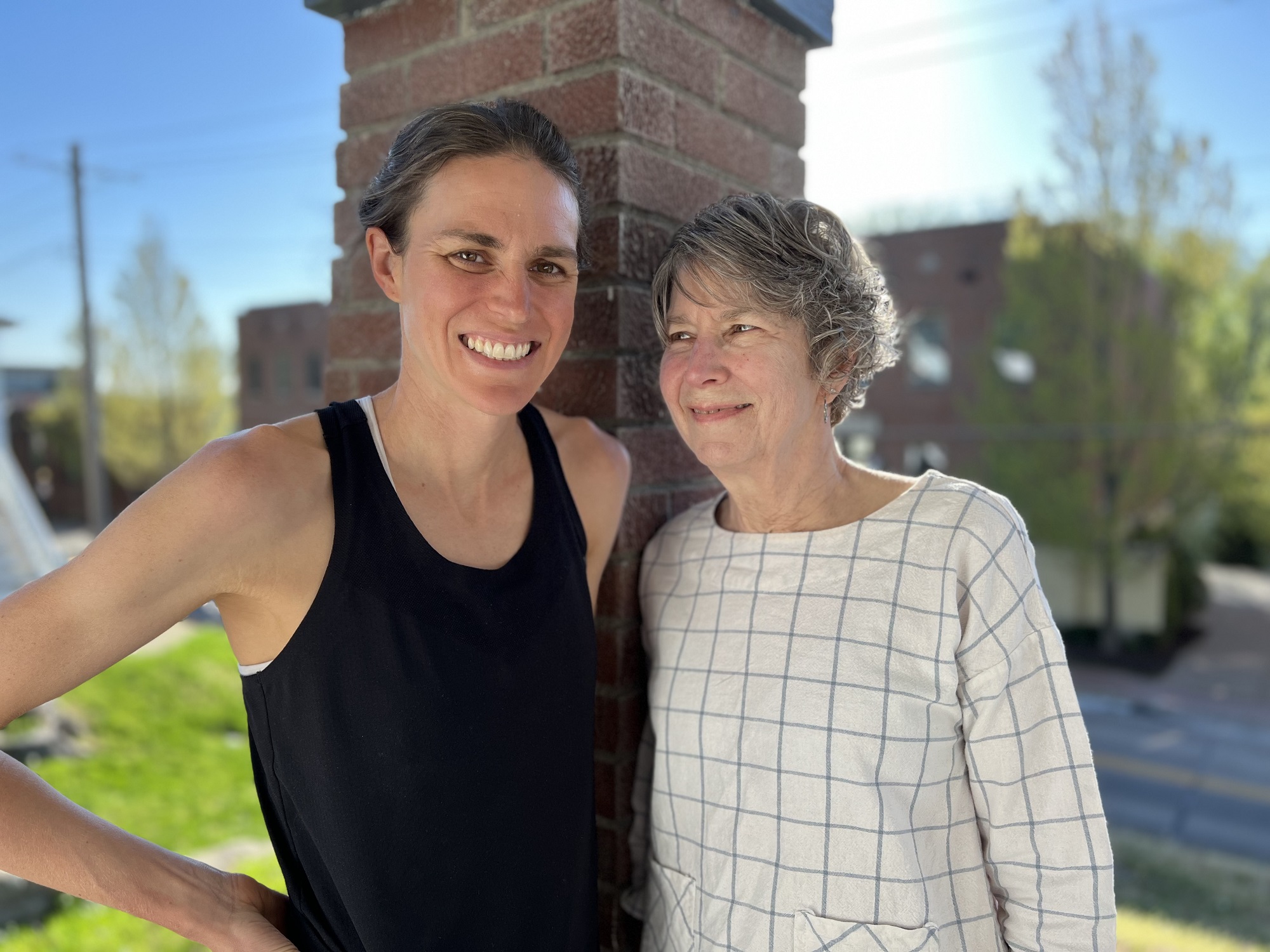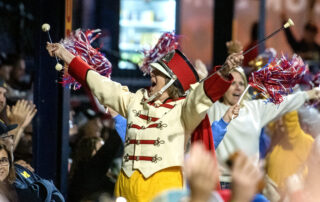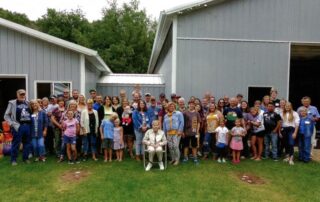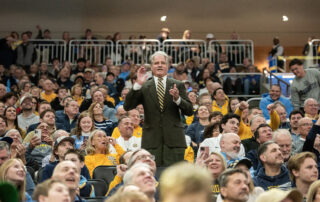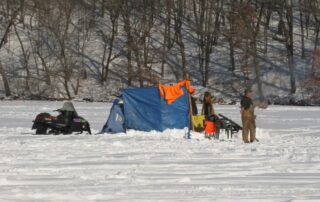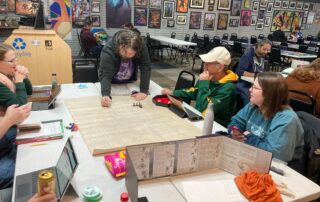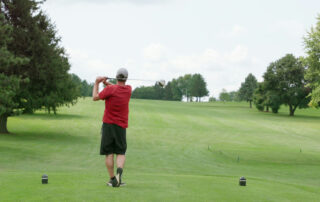The world’s best athletes will soon be descending upon the 2024 Summer Olympic Games in Paris. Watching thousands of runners, swimmers and gymnasts enter the stadium for the Opening Ceremony is electric. But then, when you think about all the people who helped those athletes succeed and get them to where they are now, that’s inspiring.
Nancy Jorgensen is one of those people behind-the-scenes. The Waukesha writer — and mother — tells us about raising an Olympian.
==
When people ask how I produced a world-class athlete, I say, “I created an Olympian by not trying to create an Olympian.” I never set out to mold a star, but my Wisconsin-raised daughter Gwen Jorgensen is a two-time Olympian in women’s triathlon.
How did I mother the Rio 2016 Olympic gold medalist? What do I recommend?

Gwen Jorgensen poses with her gold medal that she won in the triathlon in the 2016 Summer Olympic Games in Rio de Janeiro. The athlete attended Waukesha South High School and University of Wisconsin. (Courtesy of Nancy Jorgensen)
Don’t underestimate the quiet ones.
With an outgoing, talkative older sibling, Gwen often deferred to her sister: hamburgers or hot dogs? Library or park? Swing or slide? Gwen went along. Until third grade, when she discovered laps, dives, flip turns, freestyle, backstroke, butterfly, starting blocks, ribbons, and awards.
Once she found her passion, Gwen attended swim club two-a-days, competed in meets, and stopped listening to anyone telling her how to spend her time. She would be in the pool.
Practice spelling.
As a high school teacher who never dreamed Gwen would be a professional athlete, I believed academics would serve her best. So, together we established a routine of daily practice and used teamwork to master spelling words. I also registered for summer programs at the library, read a story before bed, and played her favorite board games. Would these activities benefit a professional athlete? Probably, but I never thought about that.
Today, Gwen is no orthographer, but she usually spells correctly for her 180,000 Instagram followers. Being a sports figure in the social media age requires more than physical prowess.
Be skeptical of early success.
I observed parents glom onto first-place podiums and attempt to produce a prodigy. Any such attempt with Gwen’s freestyle would have backfired. Although swimming was her favorite sport, it wasn’t her strongest. For years, she tried and failed to win a state title, then tried and failed to ignite a running career. It took a decade before she discovered her aptitude for combining swim, bike, and run into triathlon.
Buy a violin.
Mastering “Go Tell Aunt Rhody” or Bach’s “Minuet in G” demanded attention to detail, working with a coach, playing in a group, and leading a group — skills Gwen eventually applied to sports. But private lessons, daily drills, and orchestra rehearsals also created a distraction from Gwen’s preoccupation with swimming. And I preferred a well-rounded Gwen to an obsessed Gwen. No matter her profession, music would develop fine motor skills, focus, brainpower, and an appreciation for the arts.

(l-r) Gwen Jorgensen’s family surrounds her after she won a gold medal in the triathlon in the Summer Olympic Games in Rio de Janeiro in 2016. (l-r) Sister Elizabeth Jorgensen, Gwen Jorgensen, husband Patrick Lemieux, mother Nancy Jorgensen, and father Joel Jorgensen. (Courtesy of Nancy Jorgensen)
Reward assertiveness.
Gwen pouted on our Monday commutes to Milwaukee Youth Symphony Orchestra rehearsals. On the way home, she bargained.
“If you make me go to orchestra, then you have to take me to the YMCA to make up my swim session.”
I admired her dedication and, most weeks, made that extra trip to the YMCA. As our own Wisconsin legend, Vince Lombardi, said, “The price of success is hard work, dedication to the job at hand, and the determination that whether we win or lose, we have applied the best of ourselves to the task at hand.”
Focus on friendships.
I never worried about Gwen getting into trouble. She spent so many hours in the pool, there was little time for social activities. One day, I suggested she go on a date, or to a movie, just to have fun. “Mom,” she said, rolling her eyes, “I am having fun. All my friends are in the pool.”
Then, as now, Gwen’s friends were also her competitors. She still builds friendships around common goals. She derives inspiration from her friends’ achievements. She works daily with competitors so both she and they fine-tune their best.

(l-r) Joel Jorgensen, Gwen Jorgensen and Nancy Jorgensen after a race in Hamburg, Germany. (Courtesy of Nancy Jorgensen)
Celebrate wins.
From the beginning, no matter her race results, Gwen found something to disparage. “It wasn’t a personal best.” — “The top swimmers weren’t competing.” — “I got lucky.”
“Are you ever happy with a race?” I said.
“Once in sixth grade,” she said, “I had a good race.”
Gwen’s self-criticism continued into adulthood and her triathlon career. Perhaps her striving to be faster, stronger, better contributed to her success.
But she was rarely satisfied, and I failed to teach her how to be happy. Only in her twenties, when a mentor coached her to celebrate the process rather than the outcome — in practice, in competition, in life — did she discover fulfillment and joy.
Offer to cook, clean, and babysit.
At 38, Gwen is now a working mother of two boys. Her office is the pool, the road, and the world stage, where she swims, bikes, runs, and competes. I no longer make decisions for her. Now I just help out. When she is in Yokohama, or Hamburg, or Havana, I fly from Wisconsin to Colorado to cook, clean, and help care for Stanley and George.
Gwen offers her boys an array of activities from music, to reptile camp, to taekwondo, to cycling. Stanley, at 6, has a penchant for vehicles — remote control cars, go-karts, and bicycles. George, at 18 months, plays, hoards, and sleeps with Hot Wheels cars. No one suggests a professional pursuit for either of them. We just let the kids play.
